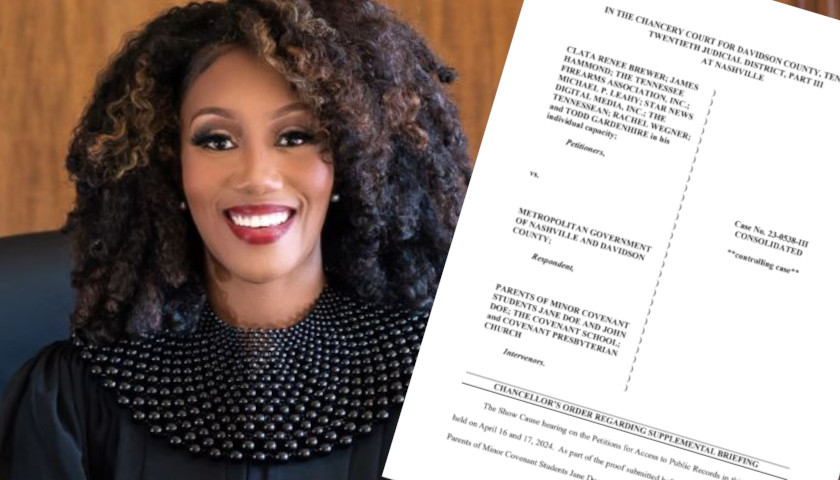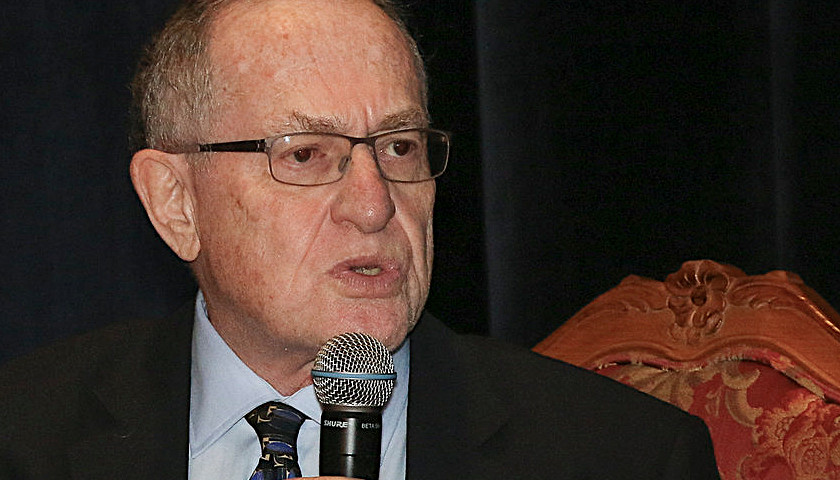Live from Music Row Tuesday morning on The Tennessee Star Report with Michael Patrick Leahy – broadcast on Nashville’s Talk Radio 98.3 and 1510 WLAC weekdays from 5:00 a.m. to 8:00 a.m. – host Leahy welcomed all-star panelist Aaron Gulbransen in the studio to discuss right to work, left-leaning labor unions, and the importance of voting for constitutionally conservative Amendment 1 in Tennessee.
Leahy: In-studio, the official guest host of the Tennessee Star Report, Mr. Aaron Gulbransen. Aaron will be guest-hosting all day Friday, getting ready to get up at 3:00 a.m. in the morning. Aaron, welcome back.
Gulbransen: I’m going to make sure I sleep ahead.
Leahy: Well, look, we’ve been talking national, let’s talk a little bit about what’s going on here in the state of Tennessee. The gubernatorial contest is a no-contest.
Bill Lee is going to easily be re-elected governor. Now, he’s not our favorite conservative governor in the world, but he’s much better than the Democrat candidate.
Gulbransen: This is very, very true.
Leahy: And then we have some state legislative races that are contested. And then, of course, you’ve got the congressional races here: te 5th district, Andy Ogles versus Heidi Campbell. Andy is likely to win that. But make sure you turn out also, because Odessa Kelly running against Mark Green.
Make sure you turn out. Mark Green is likely to win that one. And then the 6th, John Rose is running against somebody whose name I don’t recall. Okay, so he’s likely to win that as well.
But we have a big, big issue on the ballot that’s very important. It’s Amendment 1. The right to work amendment. Tell us about that and why it’s so important that voters vote “yes” on 1.
Gulbransen: It is referred to as the right-to-work amendment. Constitutional Amendment 1 would add a new section to the Tennessee Constitution to make it illegal for workplaces to require mandatory labor union membership for employees as a condition of employment, which is known as right to work. Tennessee has a law on the books that was passed in 1947 or so. But this is your opportunity to enshrine this in the state constitution whenever you can enshrine a conservative idea such as this, because here’s the thing that labor unions do.
When they have compulsory membership in an industry. They will send your dues to leftist causes, leftist candidates such as Hillary Clinton, Joe Biden, and that sort of thing a lot. Most labor unions tend to endorse Democratic candidates. So in essence, this is a very, very conservative amendment, Constitutional Amendment 1.
And, you know, there are a couple minor conservatives on social media that are advocating against it for one reason I don’t understand. But I want to make it clear and I want to keep repeating it. This is a conservative constitutional amendment. If you are against it, you are taking the position of Nancy Pelosi.
You’re taking the position that Metro Nashville Council just passed a resolution at their last meeting last week, urging voters to vote against it. And also Sean Parker referred to, who’s a member of Metro Council, tweeted yesterday that this is a racist amendment. I don’t know how it could be racist.
Leahy: If you are on the left, let’s be honest, everything is racist.
Gulbransen: But if you’re taking the position that you’re against this particular constitutional amendment, you are marching lockstep with Metro Council, including some members who are members of the Democrat Socialists of America.
Leahy: Let’s talk a little bit about the difference between a statute and part of the constitution. There’s a very long process in the state of Tennessee to add an amendment to the constitution. I think it has to go a couple of times with the Tennessee General Assembly over two or three consecutive sessions.
It has to be voted in favor of, and then it goes before the people on the amendment process. And that’s how Amendment 1 got on the ballot this cycle. I’ll give you a comparison, an example of a similar instance where it was important for a statute to become part of the constitution.
A statute can be overturned, and that can be overturned if you change the state legislature. And it wasn’t that long ago that the state legislature, both Houses here in Tennessee, I think back in 2008, were Democrat. And if you have a Democrat governor and a Democrat state legislature, they can change the law.
Gulbransen: And furthermore, because of the simple majority of the veto override, all you need is 50 percent plus one of the legislature to override a governor’s veto. So you could even do that with a Republican governor.
Leahy: You could. And that is interesting, because you take a look at the role of a governor in a state. Some states have strong governors in terms of the way their constitution works. Tennessee, we actually have weak powers for the governor because the legislature can override the veto with a simple majority vote.
Now, here’s the comparison. Back in 2000, a Republican governor, a RINO by the name of Don Sundquist, broke a campaign promise and said, hey, we ought to have a state income tax in Tennessee. And there was a big uprising, sort of a launch of Marsha Blackburn, Diane Black, Mae Beavers political careers where the legislature said, no, we’re not doing that.
Laws were passed prohibiting a state income tax. And then just a couple of years ago, we passed an amendment to say that there will be no state income tax in our constitution. That is a very comparable situation.
Gulbransen: Right. And again, it’s important. It just boils down to your ability to work, which is why it’s called right to work without having to join a union. And if you’re forced to join a union, you will get your money, the dues. And there are not just your standard union dues.
They have assessments, as they call them. My father, unfortunately, was forced to be a union man during his elevator career, and his father before him and his father before him.
Leahy: And of course, he saw lots of ups and downs. (Laughter) What did he do in elevators?
Gulbransen: He was an elevator constructor. He was a maintenance guy. At one point in time, he ended his career as an inspector.
Leahy: I couldn’t resist that bad joke.
Gulbransen: I’ll give you a perfect example. Because of his tenure, in the union and his father’s previous membership whenever an assessment came up, they do like a random $500 and all the members of the union had to pay it and they were usually in support of a Democrat cause. My dad came home from work one day going, yeah, they handed me five ballots to vote on this assessment.
Leahy: Five.
Gulbransen: He didn’t talk politics and they didn’t know he was a conservative and he did the right thing. He voted “no” all five times. (Laughter)
Leahy: But this was in New York City.
Gulbransen: Yes, but that’s the type of example that is the true story of how unions could be rife for abuse with their members’ money. And there is no possible way a true conservative can oppose Amendment 1.
Listen to today’s show highlights, including this interview:
– – –
Tune in weekdays from 5:00 – 8:00 a.m. to The Tennessee Star Report with Michael Patrick Leahy on Talk Radio 98.3 FM WLAC 1510. Listen online at iHeart Radio.
Photo “Minnesota Rally in Solidarity with Wisconsin Union Protesters” by Fibonacci Blue. CC BY 2.0.








